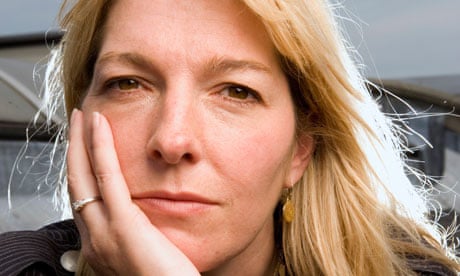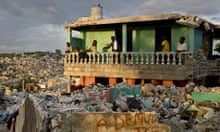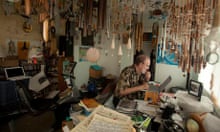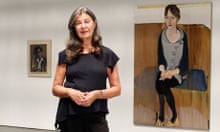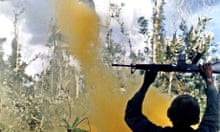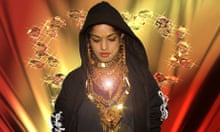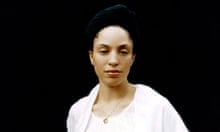I first met Jemma Redgrave 20 years ago. She was 25 and at the start of her career, playing Irina in Chekhov's Three Sisters opposite her aunts, Vanessa and Lynn. It was a Redgrave extravaganza, a landmark production and the most difficult interview of my life. I was interviewing all three actresses about what it was like to be in the Redgrave dynasty and the same production.
Vanessa does not suffer journalists gladly (she has devised a contract that must be signed, in advance, agreeing nothing personal or political be asked). My questions, although harmless, necessarily involved family and were met with outright hostility and scorn by Vanessa. There is no actor I admire more but that did not help. The interview ground to a mortifying standstill (her derision made me weep in private). The day after this debacle, I received a charming, unexpected letter from Lynn apologising for her sister. Jemma was, at the time, friendly, embarrassed and helpless. She has since said how "terrified" she was of the production – there was so much to prove: as a Redgrave, she had to act with the best of them.
I have not seen Jemma off-stage since then and was not sure whether she would remember our last meeting. I was also aware, as anyone even half-attending to the news could hardly fail to be, of the death-toll the Redgrave family has suffered recently. For Jemma, triply bereft, the losses are of her cousin Natasha Richardson – Vanessa's daughter – who died in a skiing accident in March 2009; her father, Corin Redgrave, who died in April; and her aunt Lynn, who died of cancer in May. When she walks into the Tricycle, where she is performing in The Great Game, a 12-play marathon about Afghanistan hailed by Michael Billington in the Guardian as "mind-blowing", I recognise her at once. And I can see she remembers, too, everything about our last meeting.
She used to look somewhere between a tomboy and a gazelle. Her appealing, open face is the same and her hair is still an amazing peachy colour (inherited from her dad?). She is hurrying, though barely late – doing the opposite of what her mother once told her not to do. "No vulgar rush!" she used to say. We bustle up the Tricycle's stairs to its roof terrace, decide against a panoramic view of Kilburn High Road and opt for the Tricycle's equivalent of a peaceful attic. It is as hot as Afghanistan in London today. And I see it clearly now in her face – the look that grief gives, as if a layer has been washed away. I tell myself I must be careful with her.
"Twenty years!" she marvels. And we consider the time, as if it were an exhibit we could hold in our hands. Are you still the same person? "No," she replies. I already know she is married to a QC, Tim Owen, and has two sons, Gabriel, 16, and Alfie, 10. "Your life is never the same after having children. You can't ever be the same person again and you wouldn't want to be," she says.
As an actress, she believes she has changed too. Her stint in the television series Bramwell – which she dubs "TV-rep" – was a "gift" because "I learned to be fast and intuitive. I learned to go for simplicity". There are actors who, when you meet them, are busily performing as themselves. Jemma doesn't do this. She goes for simplicity as a person too. I find one word scribbled in my notebook to define her: grace. Today, like Masha in Chekhov's The Seagull, she is all in black, relieved by touches of gold – her pumps are half gold, half black; her bracelets are golden. Yet, unlike Masha, she is not, whatever her sorrows, in mourning for her life.
She is passionate about the work she is doing at the Tricycle. "No one works here for the money," she says. "They do it out of admiration for director Nicolas Kent's work. These plays are Shakespearean in their scope and depth. This is an epic journey – you can see all 12 plays on one day and we are all in at least three or four plays. At the end, you feel you have become friends with the audience. That is exhilarating."
The plays have changed the way she thinks about Afghanistan. "I used to feel we should get out. Now I am agnostic. But we have a history of 160 years of western interference in Afghanistan. What we have done is go in, make a mess of it and get out fast. If we are going to be there, it cannot be done on the cheap."
She talks about her shock at seeing "hearses going through Wootton Bassett. We forget what is happening. But we have to think because it is being done in our name". Her voice rises passionately – as if she were on a soapbox – and she needlessly apologises. She is playing four parts, including a Victorian general's wife, Lady Florentina Sale. "My cousin Tash was a great source of help when I was struggling," she says. "Her number one piece of advice as an actor was to listen, then react. If all else failed, you could go back to that." But the trouble, she explains, is that Lady Florentina Sale talks only to the audience – and Natasha is no longer alive to consult.
I am surprised by Natasha's appearance so early in the conversation. But it has not escaped me that she and Jemma were almost exact contemporaries, actresses and mothers, each with two sons. Natasha was with her sons at a Canadian ski resort when she fell on the nursery slope. A worsening headache was the first sign of what turned out to be a head injury and she died in a New York hospital, with her sister, Joely Richardson, her husband, Liam Neeson, the Irish actor, and her mother, Vanessa, beside her.
Did she often talk to Natasha about acting? Jemma nods. "But we will talk about Natasha later," she murmurs. I ask whether she feels persecuted by fate? "Yes," she says slowly, "I feel I have been hit – several times. It is like an earthquake. You come out and find you have survived because you have to…" Her voice drops so that I can barely hear. "I look around and there is so much loss…"
She tells me her first "proper bereavement" was in 1997 when her mother, Deirdre Hamilton-Hill, daughter of an officer in the Royal Navy, died of breast cancer. It gave her that overwhelming sense of the fragility of being alive. Now she says: "I feel so vulnerable. If only there were some kind of symbol – grief's equivalent to an L-plate – that we could wear so that people would know to be kind. What I find difficult is abrasiveness and unkindness." She describes the road rage she encountered earlier in the day: "I pulled out from behind a van and couldn't see. People were stopping and swearing. The windows went down. I don't engage with it but…"
The Victorians were on to something good, she says. "They had severe mourning for a year, then lighter mourning." The first year of grief is severe, she says. "It is like a tsunami. The waves come from nowhere and shake you to the core. You never know when they are coming and usually it is at the worst, most inconvenient and embarrassing moments."
Corin Redgrave is the heart of her storm. He was 70 when he died and she makes it clear she is glad to talk about him. But a couple of days after we meet, she unexpectedly rings to say she has been tormenting herself with the sense that she has not managed to convey how much he meant to her. Listening brings tears to my eyes: "He was my north star. He was a man of fixed principle and astonishing breadth of artistry and intellect. He was, in every way, the most influential and inspirational person in my life. I feel rudderless without him."
The day after his death, she was meant to be rehearsing in a play, A Thousand Stars Explode in the Sky, about, ironically enough, coming to terms with mortality. She turned up but found it was "too soon… I couldn't separate my own grief from what was happening on stage. You need distance. If the feeling is too raw, you produce work that feels wrong, risky, faintly pornographic".
Authentic emotion becomes inauthentic. And yet she also admits that everything you experience goes into what you try to create on stage. She tells me that the most moving performance in her father's career embodied personal misfortune. After the heart attack in 2005 that robbed him of his short-term memory, he performed Oscar Wilde's De Profundis. "He read aloud because he could no longer memorise and everything – his own sense of imprisonment – came through. He had lost none of his brilliance. His genius was untouched. And he was more in the moment than any other actor I have ever seen." Her voice breaks. "And his anarchic humour too…" She explains that this was true off stage too, especially as a grandfather. He did not edit himself in front of the children (the swearing did not altogether cease) but he "made them laugh so much" and "his advice was better than anyone's".
I notice how much "advice" features in our conversation – Natasha's, Corin's, her mother's. What was Corin's best advice? She says he was keen for her to join the RSC at one point. When she told him she had turned the opportunity down because she thought she would be unhappy, he said" "Oh well, always stand by your rotten decisions." She laughs.
He once wrote her a letter, she says, in which he revealed an unexpected knowledge of ice skating and drew her attention to the East German champion, Katarina Witt. He told her that when she did her phenomenal triple jumps, what the audience was applauding was not her achievement so much as her daring. The advice was to dare to fail. As an actor, courage is all.
And courage is what is needed now. It must be infuriating to see the old headline "the curse of the Redgraves" wheeled out as if in explanation. But Jemma is used to it. "The phrase was invented by the Daily Mail. It was originally about my grandfather's [Michael Redgrave's] bisexuality, which was presented as a secret affliction." Her mother's book, To Be a Redgrave, about her failed marriage to Corin, fuelled the myth. "I've not read it. It was a money-spinner," she says.
What comes across now is how proud Jemma is to be part of the Redgrave family. She values their "tribal love and loyalty". She tells how Lynn Redgrave came to Corin's funeral at the actors church – St Paul's in Covent Garden – from the US. "She rewrote the rules of too sick to travel."
It is only after our meeting that I find Lynn's touching words about Jemma from 20 years ago. "Jemma is fabulous," she said. "I have adored her since childhood. I don't think of her as my niece. She is the little sister I never had. Although nothing about Jemma is little. I don't mean sizewise. I mean in character." Were they close? Jemma nods.
Death has dominated, but we talk about ordinary life too. When I ask if being married to a barrister is like being married to an actor, she says: "Tim is a brilliant barrister but would have been a terrible actor." She jokes about the way he brings his skills home. "He is very argumentative – trained to demolish opponents – scorched earth! It has taken me 20 years to work that out." We talk about tennis – she has joined a club. "It is so satisfying when you hit that ball – and sweet. It sings when it goes where you want it to go. It is the same in the theatre sometimes – a moment when you stop, watch yourself and fly."
We talk about her cottage in Wales – "Time goes slower there. There is a sense of permanence because the land cannot be farmed. The mountains are and always will be. It is soothing as a balm." And we talk about her black labrador, Mabel – "She was supposed to be for the children but she turns out to be for me" – and walks on Hampstead Heath.
Then, in the end, we do talk about Natasha. Jemma says losing her father was desperate but not, as the headlines insisted, a "tragedy". And while Lynn was far too young to die at 67, it was not strictly tragic either. "But to lose Tash, at 45, was obscene. It was a tragedy – there is no way round that. And it has affected everyone who loved and knew her, in a profound sense. "But here is the great gift: Tasha lived her life to the full. She embraced every second of every day. She wrung the juice out of life. She celebrated friends and family. She was a centrifugal force, she kept us in contact. Relationships and friendships happened because of her. It was the way she lived her life, rather than the manner of her death, that taught me so much. She always had plans. She loved setting a dinner table. She was a mover and shaker."
And her death has left an imperative behind it – a last piece of advice. "Tash has made me think: don't wait, don't hang around – do it."
